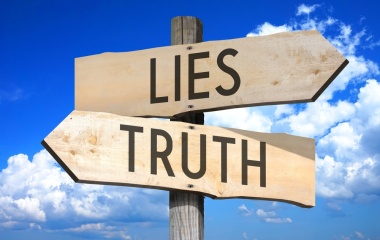
"He turned away from them and wept, he returned to them and spoke to them” (Breisheet 42:24).
“Joseph hurried out, for he was overcome with feeling toward his brother and was on the verge of tears; he went into a room and wept there” (Breisheet 43:30).
“And he wept out loud, so the Egyptians heard, and the house of Pharaoh heard (Breisheet 45:1).
“He [Yosef] fell on his brother Benjamin's neck and wept, and Benjamin wept on his neck” (Breisheet 45:14).
"And he kissed all his brothers and wept over them, and afterwards his brothers spoke with him” (Breisheet 45:15).
“Joseph harnessed his chariot, and he went up to meet Israel his father, to Goshen, and he appeared to him, and he fell on his neck, and he wept on his neck f[even] more i.e. for a long time” (Breisheet 46:29).
“Joseph flung himself upon his father’s face and wept over him and kissed him” (Breisheet 50:1).
“And Joseph was in tears as they spoke to him” (Breisheet 50:17).
Yosef certainly seems to cry a lot. No less than eight times does the Torah record that Yosef cried. And for good reason. Crying is an expression of love, or perhaps more accurately love lost. One cries about those things that one cares about dearly ad deeply. One cries when one reflects on what once was but is no longer and when one realizes that one's dreams will not come to fruition.
Avraham cries when he comes to bury Sarah (Breisheet 23:2). Tellingly, we never hear of Yitzchak crying. Not when his mother (or father) dies, nor when Yaakov returns home after so many years. Yitzhak, having offered himself on the altar to G-d, was other worldly. Fascinatingly, a Midrash suggests that when Avraham was about to slaughter Yitzchak, the heavens opened up and the tears of the angels, their heavenly tears, fell upon Yitzchak’s eyes blinding him (see Rashi, Breisheet 27:1). Any tears Yitzchak might have would be for those in heaven; he could not form deep emotional ties to mere humans.
Yaakov and Eisav cry when reunited after 22 long years (Breisheet 23:4). Yaakov even cried when Devorah, Rivka’s wet-nurse who helped bring Yaakov up died[1] (Breisheet 35:8). Sadly, there is no crying when Rachel dies. With 13 kids in tow as Yaakov travelled home, this was not the time and place for tears. At the same time, one might suggest that despite “love at first sight” Yaakov and Rachel never truly developed a close relationship. The love triangle of Yaakov, Leah and Rachel precluded deep emotional ties. It is telling that Yaakov is buried with Leah – whose death is not even recorded – and not Rachel. Yaakov would tragically have much more opportunity to cry as he mourned Yosef for many years (Breisheet 37:34-35).
And that brings us to Yosef, the one who cries more than any other. Yosef first cries soon after his brothers arrive in Egypt seeking food. It is not the sight of the brothers that make him cry, but rather after accusing them of being spies and putting them in jail for three days the brothers – not in a million years thinking that the person before them understood Hebrew – understand their predicament as punishment for how they (mis)treated Yosef years earlier.
These tears are both of mourning the great tragedy of brotherly fighting and at the same time tears of hope and joy as Yosef dreams of bringing the family together. He cries for a second time – presumably tears of joy – when he sees Binyamin and cries a great cry, one heard “by Egypt and by the house of Egypt” (Breisheet 45:2) as he reveals himself to his brothers and cries again, together with Binyamin as he sends him home to tell Yaakov “everything about my high station in Egypt and all that you have seen; and bring my father here with all speed” (Breisheet 45:13). He then cries as he sends his other ten brothers off. And when after 22 years he sees his father he cries and cries and cries. And after the death of his father, Yosef falls on Yaakov's face and cries once again – son for a father as it is meant to be.
There is one last time that Yosef is forced to cry. But we must first note that while Yosef cries three times as he reveals his identity, the brothers - with the exception of Binyamin - do not reciprocate. Yosef may have kissed all his brothers and cried but all the brothers could do was “and afterwards his brothers spoke to him”. While a great improvement from 22 years earlier when “they hated him and could not speak to him peacefully” (Breisheet 37:4) it is a far cry from a display of love to one’s brother. The original tears of hope are in danger of drying up.
And sadly, they soon turn to tears of mourning. After the death of Yaakov, the brothers worry “What if Joseph still bears a grudge against us and pays us back for all the wrong that we did him?” (Breisheet 50:15). They thus approach Yosef and concoct a story that Yaakov told them to tell Yosef not to take revenge against the brothers. Even as they were still speaking the Torah tells us that Yosef was crying. Yosef’s most sincere tears had no impact on them and the cries of hope were not to be.
The Jewish people have had too many reasons to cry tears of sorrow throughout our history and into the present. May G-d grant that the future tears of the Jewish people will be tears of great joy.
[1] The Torah does not actually say Yaakov cried – it says something even more powerful: that "she was buried below Beit-El below Alon Bacot, the tree of crying”. Apparently, many cried upon the death of Devorah.
I want to express my thanks to Rabbanit Dr. Adena Berkowitz whose shiur last night served as the inspiration for my thoughts.

